Creative Writing is the Sincerest Form of Reality

In today’s society, scientific research, business affairs, and political policies are in some cases believed to be in the best place they have ever been. It is all about the facts, the technology, and more often than not, the money. Morals and emotions do not have a place in these three categories. Where it often resides in is in the writings of some the greatest authors of the ages, from the 18th century to today, including John Locke, Jane Austen, J.K. Rowling, and Suzanne Collins. Each one of these authors created a whole world based off of philosophies, morals, and emotions. John Locke’s philosophy was extraordinary in creating the country, the world that he believed was essential to the survival of the emotional humanity he knew was coming. Jane Austen wrote about the plight against women having to depend on marriage in order to find economic security and a good social standing, doing so in a society that would never allow a challenge as such until the 1920s, when it seemed as though the steps towards equality and the emotions of women were finally being recognized. Authors like J.K. Rowling and Suzanne Collins created worlds that reflected past societies, present injustices, and future prospects.
“We don’t need magic to change the world, we carry all the power we need inside ourselves already; we have the power to imagine better.”
– J.K. Rowling
When an author is creating a world, more often than not, they gather inspiration from the world around them, and the reality that they observe. Authors will state in interviews that they will model governments and the laws they create after their real life counterparts. Creative writing is about expressing oneself in ways that scientific data and numbers cannot. It is about etching love, anger, sadness, determination, and millions of other emotions onto paper and encasing morals in print. In today’s day and age, it is apparent that what the world needs is a little bit more emotion and a handful of morals, because so many decisions are made in science, business, and politics that completely negate the very essence of humanity that we are desperately trying to preserve. Writing is a major component in highlighting this slight of humanity, whether it is journalists performing their “watchdog” duties, or creative authors trying to build a better world for their readers than the ones that they unfortunately live in.
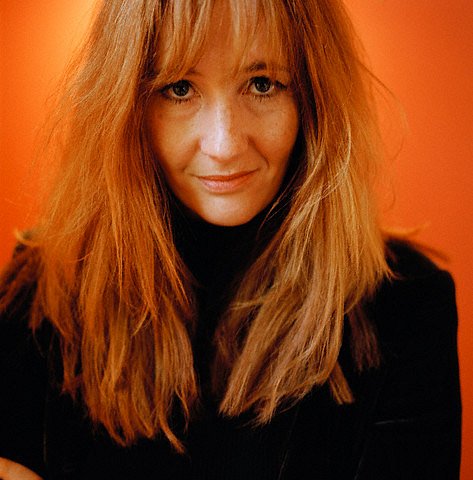
J.K Rowling, author of the famous Harry Potter series, understands more than most what it is like to strive to write a better world than the one lived in. When she was writing the first Harry Potter book, she was living in less than moderate conditions, trying to support a child and receiving minimal help from the world around her. Many of her plights and the plights of those around her were artistically written in her novels, mentioned in the biography by Sean Harris, J.K. Rowling: A Biography. Despite the life she led, and the oppressive situation that unfortunately was her life at the time, she still chose to pursue her creative talents that she had possessed since she was a small child and had a written a short story at age six, entitled “Rabbit”. By 11, she had written a short novel. Her reality was grim, and destitute, yet she persisted, because she knew that she was writing for those who were experiencing the same reality as herself. In her Harvard Commencement speech in 2008, she advocated for the power of imagination and failure and its essential role in society:
“Many prefer to not exercise their imagination at all. They choose to remain comfortably within the bounds of their own experience, never troubling to wonder how it would feel to have been born other than they are. They can refuse to hear screams or peer inside cages. They can close their hearts and minds to any suffering that does not touch them personally. They can refuse to know. I might be tempted to envy people who can live that way, except I do not think that they have any fewer nightmares than I do.”
– J.K. Rowling
“What’s Your Backup Plan?”
Writing is seen as a profession with a negative connotation. When a person decides to seek a career in writing or journalism, often times they can encounter people peering at them from under the brim of their hats demanding to know: “well, what’s your backup plan?” In a society that in many areas value STEM over the arts, it is vital that writers take up the sword to show the world that creativity is not dead, not worthless, and that this reality that those perceive as “perfect” is far from it. The actions taken to devoid society of creative talent is exactly the spark that ignites all of the creative expressions of our reality, whether it is a comedic cartoon highlighting the negative aspects of our government, or a novel such as 1984 by George Orwell that expressed the danger of oppressive governments, both domestic and abroad. Creative works can often be our best representation of society and what reality is really like.
A Writer’s Duty
 So, what does this mean for the future of creative writing, and writing in general? Reality is calling upon those who see the present through clear eyes and who have hopes in their minds for a bright future to use the power of words to shape society the way that they believe executes the morals and emotions that we as a society have lost. From recent events in politics, we see that our reality has become that church and state are no longer separate entities, and that the morals of our society are completely off their axis. Many examples of this are set in controversy, which is often times a writer’s best friend. The bills targeting contraception and abortion have raised both questions and outrage on social media and in the news industry concerning the plight of our state being influenced by matters that it swore at founding to never be influence by. This topic has been reflected in popular teen novels, such as a few chapters in Prized, the second book of the Birthmarked series by Caragh M. O’Brien, and recent movies such as “Unplanned”.
So, what does this mean for the future of creative writing, and writing in general? Reality is calling upon those who see the present through clear eyes and who have hopes in their minds for a bright future to use the power of words to shape society the way that they believe executes the morals and emotions that we as a society have lost. From recent events in politics, we see that our reality has become that church and state are no longer separate entities, and that the morals of our society are completely off their axis. Many examples of this are set in controversy, which is often times a writer’s best friend. The bills targeting contraception and abortion have raised both questions and outrage on social media and in the news industry concerning the plight of our state being influenced by matters that it swore at founding to never be influence by. This topic has been reflected in popular teen novels, such as a few chapters in Prized, the second book of the Birthmarked series by Caragh M. O’Brien, and recent movies such as “Unplanned”.
It is the duty of those with stories in their heads and words in their fingertips to write. Write about what angers you, what pleases you, what you think deserves to change. Do you find reality to be off its center? YOU have the power to fix it. Even if the scientific facts, the economic factors, and the political power is against you, you have the power to make a difference with words. Because once you publish something, it no longer belongs to just you. It belongs to everyone, and you will find that many people share your beliefs, and will get inspired by your ability to take action.
Change does not come from a fact. Change comes from a feeling; a feeling that something is wrong, something is off, that reality is not what it should be. Morality and emotions have been forced to take a backseat while facts and statistics have driven our world into one of prosperity, yes, but one devoid of the very humanity that John Locke, and other philosophers such as Henry David Thoreau, persistently advocated for.
John Locke was a firm believer in equality and independence (although the term ‘equality’ was not as developed as it is today). He advocated that humans had the right to be selfish. Not in the sense where they did not have to worry about other people, but in the sense that everyone had the right to control their “life, health, liberty, and possessions” (Two Treatises on Government, John Locke). These very familiar words for decades have been the foundation for our society; however, in recent years, those in power and even everyday citizens are forgetting the principles that our very country was founded on.
Henry David Thoreau was an essayist and philosopher of the transcendentalist movement. Transcendentalism was built on the philosophies of “self-reliance, intuition, and independence” (study.com). He understood the importance of writing as a means of reaching as many people as possible with his ideas. One of his most famous quotes concerning the dire importance of writing is this:
“Write while the heat is in you. The writer who postpones the recording of his thoughts uses an iron which has cooled to burn a hole with. He cannot inflame the minds of his audience.”
– Henry David Thoreau
In some ways, humanity has lost its creativity, its breath, its morality. Creative writing and other art forms are the ideal way to express thoughts about how we believe society has existed, how it exists now, and what steps we can take to make sure that situations such as the horrific society of The Hunger Games never becomes a reality. Suzanne Collins understands this at a deep, personal level. In an interview with the New York Times, she discusses how her family connection to war helped fuel her need to write the plot of The Hunger Games. Her father was an advocate for educating the next generation on the realities of war starting at a young age, and she wholeheartedly agrees. “If we wait too long, what kind of expectation can we have? We think we are sheltering them, but what we are doing is putting them at a disadvantage” (Collins). She also mentions how she encountered readers or parents of readers who decided to make the story an allegory for troubled adolescences, rather than the reality of it: an allegory for oppressive government, corrupt leadership, and the horrors of war. “I don’t write about adolescence,” Collins insists. “I write about war. For adolescents.”

The Art of Reality
“Every secret of a writer’s soul, ever experience of his life, every quality of his mind, is written large in his works.”
– Virginia Woolf
Art is the glue of society; it takes you into a world that show reality in its purest form; reality is stripped from the facts, the stats, the financial state of things. It exists as we are meant to see it, and portrays the future of what we want to change. Writers have seen this side of reality since the beginning of time. It is why we have mythology, and religion, and the societal structures that we do. Writing for ages has circulated powerful ideas, and it continues to do so, even if it is not on tablets and are not the ethical laws of a society. Writers see the reality that their emotions paint for them, and their morality guides them to construct a world that is not so far out of our reach. Writing can do so much; it can persuade the masses, inspire the new generation, anger a society, encourage the leaders, bring together a country, and even tear apart a world. Writing holds the power in our society, and it is the most essential thing that we have. Writing, after all, is the sincerest form of reality.
What do you think? Leave a comment.
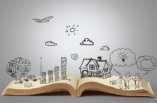


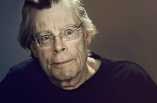

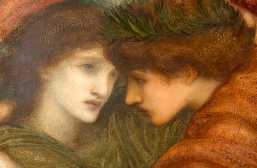
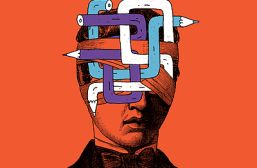
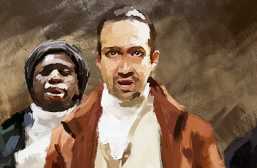
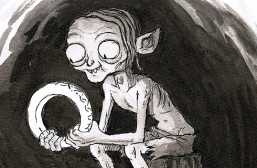
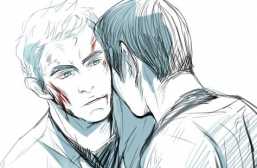

I enjoyed reading this 🙂
You argue that creative writing is the sincerest form of reality, and you tend to refer to more traditional forms of writing itself. But what if we consider writing as part of a dynamic ‘ecosystem’, what new possibilities does writing in a digitally networked environment open up? Where writing presents innovative opportunities for audiences to interact with multimodal platforms and creating new exhilarating experiences. When a ‘reader’ can connect with their senses to see and hear the characters within a story – it provides a sense of social reality, is that a form of reality too?
I love your concept of writing as part of an interactive, dynamic ecosystem. I think that as much as people love hard copies and the feeling of a book or creative piece in our hands, with the technology we have in our grasp, digital media is our future. I love the idea of interactive, multimodal platforms as a way for communities to experience different realities to understand more of the world and the people around them. I think this would be a great topic to explore!
This is great, well done! I love to read a good, strong case about the power and importance of creative writing. I have been a writer from a very young age, but I put the pursuit aside for a while because I began to doubt its efficacy as a social force. I’ve recently picked it up again, and started a BFA (Creative Writing) because, if nothing else, writing helps me to parse the experiences I have in a world that seems increasingly bent on self-destruction. Reading your article has reminded me of so many reasons writing helps readers as well. Creativity is, indeed, the breath of life in humanity!
Thank you! I’m so glad you started on the journey to get a BFA in Creative Writing, it really is important to continue what you feel you are meant to do! Using writing as a method of dealing with experiences in a world that is often mean, unkind, and cruel is very therapeutic and often helps us discover the best part of ourselves and the best things about the world! Don’t stop writing and being creative! We need more people like you 🙂
As someone who has wanted to pursue a career in the arts since I was a kid, I couldn’t agree more. My whole life people have asked me what my real job is gonna be when things don’t work out and I always tell them it’s gonna work out because I’ll make it work out. I want to provide people with the same thing my favorite creative works gave me throughout life. An escape from the grimness of our world and maybe an inspiration to help change it.
Hearing people say that a career in the arts is not a “real job” is definitely hard to hear. As a journalism major, I get a lot of people laughing and asking about my backup plan, so I understand your frustration and appreciate your determination to continuing to pursue a career in creative arts! I also love that you want to inspire people the way other creative individuals have inspired you. It is very important to not only create our own worlds, but to keep sharing the ones that have existed throughout the ages. Individuals such as yourself are the key to inspiring and awakening the world, so keep going!
Very well done! It’s common for people to take the arts as a joke, but as someone who loves to write and is studying a bachelor of arts, I completely agree that there is immense power in it.
In particular, I think societies today could learn something from dystopian literature – they’ve been given a variety of guides on what not to do.
I agree! I feel as though individuals and governments could use dystopian novels almost as “How Not to Run the World” help books as well. Dystopian literature can make real governments aware of their current methods and show them the danger that can hold for the future. Writing can be a political tool as much as an artistic one, and should be treated as such. Sometimes creative writing pieces can shine the most light on a particular issue; the arts can express war and depression and disease and many other realistic plights and can start movements and stir emotions towards change. A joke, the arts definitely are not!
Really nice read 🙂
Though, for those who are actually not fond of creative writing or not as good at it from a professional writer’s perspective, creative writing is not as emotionally expressive, or intellectually/artistically stimulating as thought to be.
I completely agree that creative writing can be an acquired taste of sorts. Those who’s brains are not hardwired towards the arts and are more accustomed towards the sciences can sometimes not understand the stimulation of art or the metaphorical implications of writing, and that is 100% okay! I won’t pretend that I know a thing about math, economics, or science. A solution, perhaps, would be for universities to require some sort of creative writing course or a course in the arts that could explain this phenomenon so they do not feel behind (and some universities already do this!), in the same way that schools require math and science general education classes. That way, emotionally expressive pieces of writing and/or art can be understood fully. Who knows, someone may discover they have a deeper appreciation for writing!
Great!
Thank you so much!
This was such a powerful and correct piece! Not just about writing but art in general. The amount of people that question the validity of creative careers, and the purpose, is frustrating. Especially when we are the ones reflecting on reality, attempting change and imagining a better future.
Really interesting article, thanks for writing.
Creative writing is kind of a way to escape reality.
Very true! Sometimes I wish that I could escape into the storyline’s I create! But many creative artists, such as writers or painters, for example, often will use the reality around them to either create the reality they wish they had or to emphasize the reality around them to those who may be blind to it.
I think creative writing is more like making reality. Its the same process as what happens anyway. What is inside us comes out but with creative writing it comes out more purposefully on paper in the form of words. I think its like purposefully and consciously making reality 🙂
Single best piece of advice I was given: “If you sense that an idea or event is off but can’t quite place what it is, it is worth dissecting.”
Fiction-making is so much fun that many non-fiction writers prefer to make up stuff.
Creative writing, no matter how surreal or otherworldly, is a response to reality.
Isn’t everything we do a response to reality?
Writing is so critical in the fact that it reflects the truest nuances of the human experiences. We are to express ourselves freely though the flow of the pen. These thoughts, communicated in free form, provide the opportunity for people to experience liberty and extend those same sentiments to all.
Am I allowed to respectfully disagree with the heading of this piece. Words are symbols twice removed from reality. Yes, words can be sincere, but whether they describe what is real or not is entirely separate. Sincerity is blessed and sacred, I will not argue that.
Am I allowed to respectfully disagree with the heading of this piece? Words are symbols twice removed from reality. Yes, words can be sincere, but whether they describe what is real or not is entirely separate. Sincerity is blessed and sacred, I will not argue that.
What a wonderful article, thank you so much for this work.
I sincerely believe that the arts has so much more to teach in today’s world. Perhaps in the modern world we place to much value on the five empirical senses and forget that emotion and and a sense of being are an integral part of what it is to be a human. Creative writing is certainly a vulnerable exercise and opens up the writer and indeed the reader to an ethereal experience that can all to easily be taken away. However, through persistence and a little stubbornness I believe creative writing and an engagement with the wider arts community allows us to see the greater world, a world where humanity is a shared experience and we each have a stake in its future. For all their wonderful contributions, STEM subjects are nothing if not for the creative minds which have advanced our knowledge of the the world. Only by appealing to our elemental experiences can we see through the clutter of the modern world and beyond our immediate self. In doing so, I believe that we create a more thoughtful society and indeed a better humanity.
Thank you so much for your comments, I agree 100%!
To the outside world, fiction writing gives an author unlimited freedom. As a writer, it tends to be the opposite.
The most beguiling step in the creation of a story is the charged moment when the main character becomes clear to the author and the story’s principal themes present themselves. This is always in line with the author’s sense of reality.
Now I am inspired to read, and write.
I am so happy to hear this! I hope you do follow on this path, it is very rewarding and insightful as to who you are as a person and as to how the world operates around you!
Lovely post.
Oooh IR I see, I figured that would be the case, given the references to Locke. I think this is very interesting, but certainly a critical look at the world; after all, I think we’re at a point where value for the arts is resurging. In particular, the love for “indie” creators (and the push back against capitalist-type “arts” (just for profit)) seems to be prominent, at least for some generations.
Overall a very inspiring article, though.
I’d like to add another author/political philosopher to the discussion:
Orwell writes, “Liberal capitalism is obviously coming to an end,” in an essay in the early nineteen forties.
That quote places Orwell, political critic, and prolific author, into a time-bound historical moment. Just before World War II (in Orwell’s mind) the world order is pre-ordained, and “[l]iberal capitalism is obviously coming to an end.”
He writes this essay as a message to the world on “saving” not just literary honesty but sheer literary existence by prodding people to “evolve a form of Socialism which is not totalitarian, in which freedom of thought can survive the disappearance of economic individualism.”
He was sure of this future, and his beliefs can only be understood in the frozen reality in which this essay was written… which also became historically untrue.
All of this to say, this is not the first time the importance of creative writing has come up in the modern US. Let’s dig in and figure out what’s necessary to keep sending these messages. Writing is certainly a true version of an existence and many versions are needed to induce a larger reality.
This is the fantastic web we find ourselves mixed up in. We’re not sure whether to call the writing “inaccurate” based on how history played out, OR, if it was the impetus for EXACTLY the way history played out.
Either way, we just have to keep going.
*The Collected Essays, Journalism and Letters of George Orwell, Volume II My Country Right or Left 1940-1943 / pg134-137
Nice article.
As a writing major myself, I appreciated your insight on the importance of this career choice! I wholeheartedly agree with your statement on how important it is for writers to remain strong in a world where the arts are undervalued, the same world that needs persuasion and inspiration to thrive, which can be found in the written expression.
Thank you for this essay! After finally graduating from college this month, I’ve been feeling a lot of self-doubt and confusion if I should pursue a career in writing. This has greatly encouraged me to continue writing, though I do hope the arts can become a more lucrative career choice in the future!
Thank you so much for your words! I am glad that this has helped you to follow your passion, never doubt what you believe you are meant to do!
Change comes from feeling, a good perspective. An interesting essay, I enjoyed reading it.
Our society relies on facts and statistics because it keeps us stuck in our reality. Data only shows us what is happening right now. If you get an oppressed community to imagine and work towards a world where we thrive, then that threatens our current insitituitonal structures. Leaders in power are afraid of that and will silence creative voices to protect themselves. I enjoyed your essay! Great Job!
J K Rowling’s quotes were an excellent addition to the beginning. Great read.
Excellent intuition
Writing allows us not only an escape from the real world, but also grants us the means of understanding and processing the things we learn here. Great read.
This is part of why I love being part of a community of writers: everyone understands! I’ve always wanted to be an author, and hated the thought of me being a journalist — but everyone always asks me if I’m planning on becoming a journalist when I tell them I’m a Rhetoric and Writing major. I don’t like to tiptoe, either, so I just straight up say no, I just love writing!
Exactly! I feel the community of those who are employed in the arts are like one big family, because we all understand that we are focusing more on passion and devotion to what we love versus monetary success (which is also very important, just sometimes not the main concern!) Passion brings people together from all different types of backgrounds, and I am glad that you have found yours!
An intriguing essay. I especially liked the section about Suzanne Collins—“I don’t write about adolescence,” Collins insists. “I write about war. For adolescents.” I appreciate the nuance of that distinction and feel it applies to many writers of young adult fiction (an often misunderstood genre for this very reason, I believe). I spent a good deal of time researching Collins and her perspectives on necessary/unnecessary war after reading this. Fascinating to follow the thread. Thanks for writing!
As a writing minor, I enjoy creating characters and analyzing multiple scenarios for them. You have very interesting insights.
This essay speaks to me as a writer on a number of levels, but the main one is from the section titled “What’s Your Backup Plan?” This is particularly poignant to me, as I have had that response directed to me nearly every time I tell someone that I want to write. What most people don’t realize, that I think this article touches on briefly, is that without creativity, those cold hard “facts” of life would not be here. Mathematical equations may be based on certainties, but they would not have been thought of without someone being inventive and creative enough to make previously un-thought of combinations. It’s amazing how so many people ignore the creative aspects of “realistic” jobs. Thanks for drawing attention to this!
I find this rumination on the connection between authorship and reality kind of odd. When you strip the “facts” and “stats” from reality, as you write, what is it that’s left? It would be helpful if you defined it. Because I think reality is how things ARE, and this article seems deeply concerned with how writers have a stake in how things COULD BE. In this sense, I would say that writers are dreamers rather than realists. They are often prescriptive rather than simply descriptive. And I think that’s the power – though science or “fact” might tell us what is, artists tell us what could be or should be (the wisdom and morality pieces). At least in part. I do think there is truth-telling in art as well, but I think it’s much more complicated and needs to be parsed much more deeply. Thanks for the thought-provoking article!
I really enjoyed this article! After reading this article, I felt compelled to write. I really appreciated how you stated, “change comes from a feeling”. Many people think that they must wait for the facts and “receipts” before they can act, however they can respectfully act on their feelings and emotions. I also appreciate how you give writers and other artists the duty of giving society more emotion. All around, I really enjoyed reading this article
An interesting article but I think the argument here could also be applied to Art in general not just creative writing.
It is so easy to get lost in the world of facts as a writer. I liked this article because it reminded me of the power of writing, how we can share and even change our realities through writing what we know to be true and what we hope can become true. Writing is a hopeful endeavor. I think that’s why it takes so much persistence.
such a good read!
I’ve always appreciated the art of writing
Wish I had the skills to write and create a story
Beautiful piece of writing, driven from a place of the soul. I would like to extend my deep gratitude with you for sharing. There truly is something powerful with creative writing, to make someone feel that ineffable feeling of relatability, that “ah I get it” moment. Having that connection with others through writing is something so pure.
I find when it comes to academic writing (for university) we are subjected to the tight restriction to write about what other people want us to write about, which often negates the ability to be creative. There is unequivocally something cathartic when writing whats inside you, a release of sorts, you get to empty out that stream of consciousness when writing in a creative manner that you can’t when writing in an academic setting. I am curious in the not distant future if we will see an intertwining of creative and academic writing, I certainly hope so.
This is fantastic! As a creative writer myself, it can be hard to find those who see the arts in their truest potential. I agree with you that creative writing is the best way to look at a reality. Not only writing, but many different types of arts can provide a deeper thinking rather than a superficial way of thinking––which can often happen with STEM programs. I also love the idea that it is a writer’s duty to share experiences with the world, whether the world finds it interesting or not. This was a great read!
Brilliant article! “Writing for ages has circulated powerful ideas”- this is very persuasive, let me remember the power of words and power of writings. Writing is such a finest invention which human beings have created! It allows us to communicate with people from ancient days through their books.
All writing, regardless of what the topic is, or what it’s about, is creative in varying degrees or others. Writing is a channel of sublimation, and a wonderful activity that helps people who have a harder time speaking (or anybody, for that matter) to express their ideas far more freely and openly.
This is a beautifully written article! Your point about writing about what deserves to change really struck with me. It’s really easy to feel powerless in the world that we live in today, but you reminded me that creative writing IS powerful, regardless of what society might think of it. Thanks for this article, it inspired me to continue writing.
A great article. Thank you for this. It is a beautiful encapsulation of why, in my view, the best way to capture reality is by using the written word to explore human feelings and emotions.
It is not clear to me how there can be a sincere form of reality (or an insincere form of it). Reality just is. We can write about it in sincere and insincere ways, but that is something different.
Both fictional and non-fictional writing are important and valuable, and both can help us understand reality.
I am also not sure that “Change does not come from a fact”. Change just happens — it may be driven by emotions, but it may be driven by other things.
“Creative works can often be our best representation of society and what reality is really like.” This is so true and I’ve always felt this way, though I never was able to put it into words until recently. I really like the mention of J.K. Rowling because I’ve been rereading Harry Potter and each time I reread it, I learn something new. It’s amazing how powerful that story is to me, but why wouldn’t it be? There are so many thought-provoking themes of love, death, corruption, justice, family, and that’s not even scratching the surface.
The best stories are timeless because they reflect the world we live in. It doesn’t matter if it’s in a fantastical setting or more “realistic” fiction; the messages we gain are all the same.
I’ve been breaking out of the notion that writing is a “worthless” pursue for me because, as you mentioned, many people point to writing as a nonviable career. I too have felt like I’ve often needed a “backup” plan, but I’ve realized that writing is my passion. It’s something I’ve always held deeply and that’s not changing any time soon.
Art is valued but so often we forget and dismiss it as something “inferior”, but I cannot imagine a world without art. It speaks to us in ways we cannot imagine. It’s innate in who we are as people.
First off I really appreciated this article; I consider myself a writer and pieces like yours remind me why I have to continue my pursuits to better myself as a storyteller and be a more disciplined advocate for the world I want to live in.
With that, I wanted to touch on the Suzanne Collins anecdote of how readers would sometimes perceive her work as an allegory for adolescents rather than one for wars and governments. I think that relationship between author and reader is so interesting; an author can guide readers to certain ideas but cannot always make the two trains of thought align. It is a reminder that just as writers bring experiences and ideologies to a story, so do the readers. The background of a reader can determine the characteristics and themes that they choose to project onto a story.
That why storytelling is such a collaborative effort; writers provide all the ingredients of a story, but it really is up to the reader to create meaning out of it all, and the combination of that is the formation of reality.
A well done writing about writings! I just graduated and hope to pursue a writer’s career. However it seemed that writing things I personally passionate for is not a real career for most people — writing scripts, columns, business plans, proposals, and ad copies is. The social misconception is deeply rooted here, as if writing without a commercial purpose is never valued in a capitalist way.
I don’t know, I love writing, but I can never find a stable job as my engineer or marketer friends do.
Agreed!
And most beautiful thing to be yourself in this envious world; full of jealousy.
This is wonderful! The analysis of the chosen texts is great and expertly reflects your thoughts and opinions.
I also really loved the reflective notion that you reinforced toward the end of the piece, that writing is not considered a profession and more like a passion project, until you make it big.
I think creative writing not only allows us to create worlds that tell our audience about things relevant to their real ones, but that it allows us to express things about ourselves to our readers that allows for something to be learned from or to consider.
This was a total pleasure to read.
Thank you very much!
Well-done. I look forward to your future contributions!
Great piece. I suspect that creative writing will always endure, even through times of particular social and political disharmony. It remains our way to understand and make sense of ourselves and our world.
Everyone that I tell I am in English as a university degree says either “are you going to be a teacher?” or “you know that books are obsolete, right?” There is such a negative stigma around writing and the entire writing industry. People are losing faith in the written word and the power that the pen holds. People admit to words being stronger then a sword, but don’t show faith in words until they are highly esteemed. Words begin from the little guy, the guy that was hurt or kicked out or dumped or broken. The emotions that every person has felt at least once are the emotions driving our motivation to throw words at the page and make them stick. People channel their emotions into things like exercise or their jobs or hobbies, but rarely think to write about them; I don’t know if this is a fear of putting it on paper because that would make it real or whether people were deterred from writing from the lack of inspiration and encouragement as a child/student.
I love this article! I studied creative writing in college, and I’ve recently quit my job to pursue writing full time. When I first quit, I received a lot of disapproval and a lot of questions about what I would be doing next. The answer was, of course, writing (the thing I went to school for, the thing I’ve wanted to do since I was eleven). This disapproval really made me second guess my choice to write, and I think people give that kind of disapproval because our society values how much you make over what you do and why you do it.
I believe that writing and art forms in general show us so much about society and about human nature. I think too many people underestimate how important it is to be able to empathize and relate to others. Writing gives readers those abilities. Without those abilities, we struggle to come to solutions for everyday problems because we won’t be able to compromise with those that disagree with us.
Overall,this was a really great article, and I appreciate your thoughts.
This is a lovely piece, written beautifully. Love the quotes you used.
Nice tie-in with philosophy, a really great piece!
Very inspiring and something to come back to whenever I have my doubtful days about why I want to be a writer. Creative writing is more intrinsic than the people who deride it realise. Stories, novels and comics; television and film, music, video games…all these things that the world love. Anyway, thank you for writing this. Very grateful to have read it.
I knew at the age of 8 that I was to become a writer In 2004 I was introduced to scriptwriting and it’s been heartbreaking and rewarding at the same time. My first script, I wrote in my head for almost 6 years and by the time it was time to write it out, my hands couldn’t move fast enough on the keyboard.
Creative writing is amazing and like Rowling said, what we create is a part of us. 🙂
This article is great for those who do not understand why Creative Writing is so important, or for those who understand just how relevant it is in modern society. It’s true: if you tell people you want to pursue a career in Creative Writing, they shoot you that smug look, as if your plans are insignificant. Writing is reliable, though–not just from an economical standpoint. Writing is reliable for the mind, the soul, and the heart. What could be a more powerful feeling in this world than knowing your words have influenced and impacted people for the greater good. No job can provide you with a comparable satisfaction.
Honestly, yes. I cried when I wrote my latest non-fiction story because I put every emotion I have into it. I was even surprised at myself for crying too. The more I learn and write non-fiction, the more I come to appreciate it.
I love this and fully agree with the sentiment. Writers have a privileged position in that, unlike composers and painters and the like, they communicate in the same manner as humans communicate day-to-day; it is thus far easier for a writer to relate without ambiguity their version of an ideal world. As an aside, it’s interesting to note how dystopian literature is much more prevalent that Utopian literature… it seems we enjoy discussing what we do NOT want to see than what we want.
JK Rowling encourages us to look towards the worlds we don’t know, leaning into their reality, partly to extend their own. The dystopian lens allows us to explore the dark shadows of our psyche rather than the cool stream which flows gently on the surface – the crux (or horcrux) of the matter is shining the light and not being scared of what we see.
Hi! This was a very good read.
May I, however, respectfully disagree with the following;
“Art is the glue of society; it takes you into a world that shows reality in its purest form; reality is stripped from the facts, the stats, the financial state of things. It exists as we are meant to see it.”
In my opinion, writing is the exact opposite of ‘reality in its purest form’. What is the pure form of reality anyway? Writing is the ‘idealized’ form of reality, which to me is a bittersweet aspect. Idealizing reality can make the world a better place, but it can also steer us away from the ‘facts’. You also say that facts and science are not art, and steer us away from reality. But to me, science is the same as art, or should I say, art is a form of science. As Richard Feynman put it, science is the same as sitting at the corner of a large chessboard and trying to figure out the rules of the game. Isn’t that also what writers try to do? Look for answers and make ‘reality’ better? I believe art and science, or should I say ‘fantasy’ and ‘fact’ are not very different in that both ‘come from the same place’ – both strive to make the world a better place.
I think writing and the arts are so frowned upon as career choices because people perceive them to be things outside of society. Like they’re untouched and pure or something and can’t be ‘real’ because they don’t always deal in a language of realism. But what we forget is that they point out truths in our societies and in ourselves that we have yet to admit, and that’s what makes this type of work so valuable. They aren’t just stories told for the hell of it, there’s almost always more to it!
What a great topic to write about, creative writing reaches deep into our mind which many times has our purest form of reality!
Writing has a major impact on human being history of his well being. It is the writing that has made a social animal to believe that be more social and jounerous is his acts to create a better society. It is writing that arises the awakening of among different cultures, countries, faiths to make the world more lovable for each others..
What?
This article is very interesting and I think more people need to hear what you are saying. You make very relevant points that connect to society today. It’s true creative writing is a way to express emotion and explain things from the real world. Creative writing is a powerful tool to express things in ways that can be better understood.
I loved this! Writing is such an important part of experiencing and understanding our, and alternate, realities. Often times writing helps me explore the bigger picture and boil down my emotions into something that is meaningful. I completely agree with the sentiment that writing is frowned upon as a career. I feel as if most people, unfortunately, don’t understand the power writing can hold as an art form. It truly transports you to a different time and is one of the most useful ways to experience and understand a different time period, person or event. I mean why else would they use literature to teach us so much history in school for most to just push writing to the side as a career??
This was a beautiful piece. As a fiction writer myself, I strongly relate to the various opinions of the authors you quoted. What Collins says is absolutely true: we never write about adolescents, but about the war and the suffering – and how it affects real, normal human beings. I always tell people who ask me why I write something similar to what you proposed (albeit much less elegantly), which is that the exploration of the human condition is at the heart and soul of creative writing. And I think that’s one of the most important endeavours that one can pursue nowadays, as you pointed it. Anyway, I’m rambling…I loved it (also, you write beautifully).
Yes thinking creatively and abstractly is essential to building relationships.
A much needed argument in favour of writing.